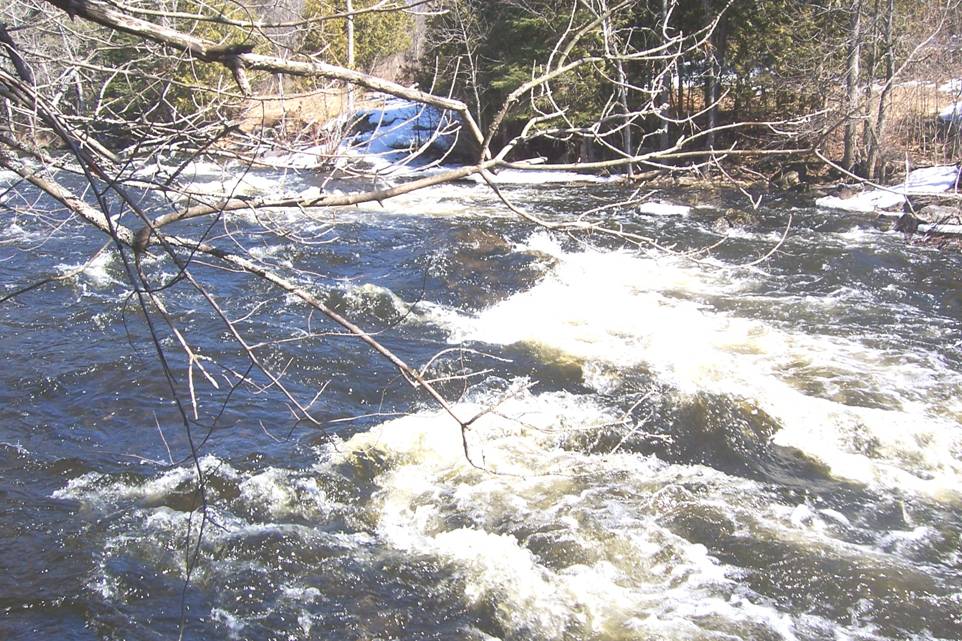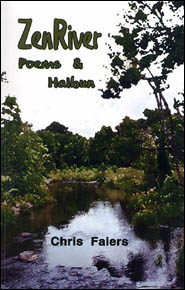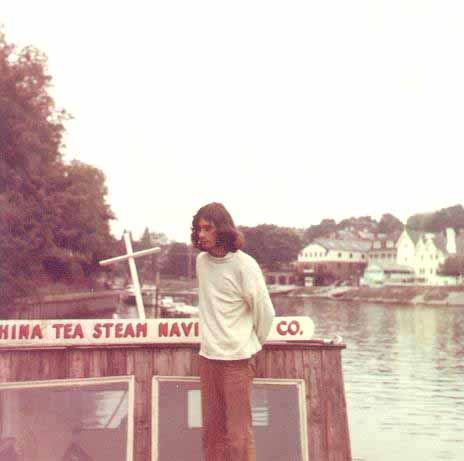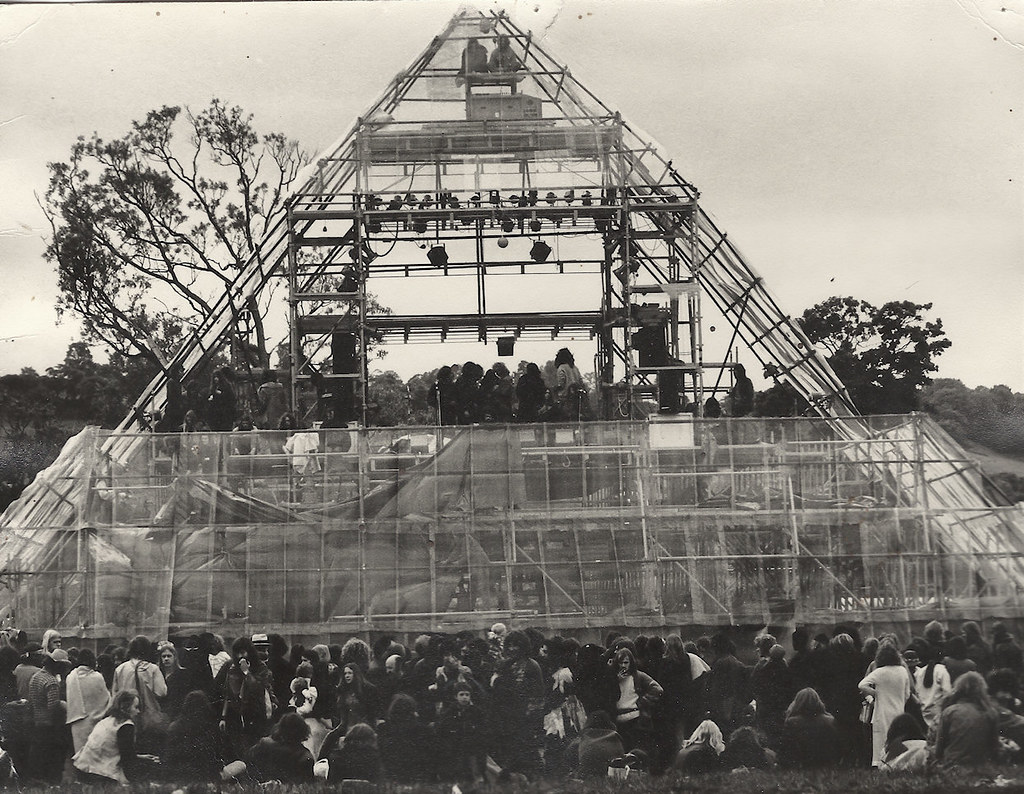From 2007 to 2014 I organized eight annual Purdy Country Literary Festivals at my ZenRiver Gardens retreat in the hamlet of Malone, Ontario. One of the many projects which evolved from these gatherings was the anthology And Left a Place To Stand On: Poems and Essays on Al Purdy (Hidden Brook Press, 2009). I've been going through old emails from long ago, found this essay by James Deahl, and decided post it.

The Country of Our Defeat:
Al Purdy and the Canadian People
by James Deahl
In the literary landscape of Al Purdy, upper Hastings County is the country of our defeat. It is also the country of his grandfather and a country Purdy could neither inhabit nor leave. Hastings County is a land of great beauty with its Canadian Shield topography and rugged, high townships; it¹s a country of harsh, life-and-death struggle, like the Scottish battle of Bannockburn, and a country of failed farms and their defeated lives.
While Purdy¹s heart belonged to upper Hastings County (sometimes called the Hastings Highlands by folks who feel it resembles Scotland), he spent his most creative years in Ameliasburgh, Prince Edward County. Following his move to what he called ³A-burg², he wrote the poetry that embedded his work in the canon.
But Purdy the writer did not start in A-burg. Before arriving, Purdy had spent time and great effort in Montreal trying to become a leading voice in People¹s Poetry. To this end, he associated with poets like Frank Scott, Irving Layton, Milton Acorn, and Louis Dudek. In addition to these contemporary People¹s Poets, Purdy was also influenced by the older Canadian tradition exemplified by Confederation Poet (and first Canadian People¹s Poet) Bliss Carman and E.J. Pratt.
People¹s Poetry in Canada began with the Confederation Poets: Isabella Valancy Crawford, George Frederick Cameron, Sir Charles G.D. Roberts, Archibald Lampman, William Wilfred Campbell, Bliss Carman, Frederick George Scott, and Duncan Campbell Scott, all born between 1850 and 1862. Their poetry led directly to what I call the Great Generation: A.M. Klein, Dorothy Livesay, Irving Layton, Anne Marriott, Miriam Waddington, Louis Dudek, Al Purdy, Raymond Souster, Eli Mandel, and Milton Acorn, all born between 1909 and 1923. These later poets were influenced by the Confederation Poets; and while some, such as Layton and Purdy, would eventually reject Confederation poetics, others, like Livesay and Acorn, never relinquished their admiration for the earlier movement. To completely understand the poetry of Al Purdy it is necessary to understand the People¹s Poetry tradition, why he joined it during the 1940s and Œ50s, and why he left it to become the man of letters we know.
While People¹s Poetry started out as a movement to reflect the Canadian landscape and the Canadian people, it sometimes acquired a sharply political edge in the 20th century. Several of the poets who followed the Confederation Poets had Marxist backgrounds; Earle Birney, A.M. Klein, Dorothy Livesay, Louis Dudek, and Milton Acorn were socialists or even communists, as was Frank Scott, a founder and National Chairman of the CCF (later known as the NDP).
As a result of the addition of activist politics, People¹s Poetry in general came to embrace a philosophical/political belief in ³the People². Many poets convinced themselves that progress could be clearly seen in humanity. In terms of social physics, this means that society tends to move from a state of disorder to one of order. Thus, society improves, becomes more fair and less governed by social Darwinism. Social justice becomes the rule rather than the exception. In this way, humanity is largely perfectible within history; that is, humans play a major role in personal and collective salvation.
Of course, the poets mentioned above did not all believe this fully, and some came to reject such a strong belief in ³the People². But if a writer, like Purdy, refused to believe in ³the People² and instead simply believed in other people, could he still retain his People¹s Poet credentials?
The area of the McGill University campus was a rich stew of modernist poetry, Marxism/socialism, and Canadian cultural nationalism. Montreal enjoyed a history of important literary magazines like The McGill Fortnightly Review (which involved major poets like Frank Scott and A.J.M. Smith), First Statement (which involved both Layton and Dudek), Preview (Scott, P.K. Page, and Klein), Northern Review, formed by the merger of First Statement and Preview, (Scott, Layton, Klein, Smith, Page, Livesay, and Ralph Gustafson), and Delta (Dudek). This is what brought Purdy, Milton Acorn, and many other poets to Montreal. Over the years, writers came to Montreal to meet Scott, Dudek, Layton, and the others in and around McGill; they formed lasting friendships (or became bitter enemies), developed their craft, began to publish in little magazines, and dispersed to other parts of Canada. Al Purdy went to A-burg, and when he went he possessed a rather different view of the Canadian people.

Al Purdy at his A-frame on Roblin Lake
Having relocated to Prince Edward County (or The Country South of Belleville, one might say), Purdy set out to compose his major poetry. ³At Roblin Lake² appeared in The Crafte So Long to Lerne (1959). ³Indian Summer² and ³Remains of an Indian Village² followed in Poems for All the Annettes (1962). And then in 1965 came The Cariboo Horses and signature pieces like ³Winter at Roblin Lake², ³One Rural Winter², ³Roblin¹s Mills², ³The Country North of Belleville², and ³My Grandfather Talking ‹ 30 Years Ago². Later there would be a revised edition of Poems for All the Annettes (1968) with important poems like ³House Guest² and ³At the Quinte Hotel². And later still his amazing In Search of Owen Roblin, a coffee-table book published in 1974, offered an extended study of the United Empire Loyalists, Owen Roblin, and Purdy¹s own family. Even as his life was closing, Purdy kept working and re-working his eternal themes in ³My Grandfather¹s Country² and ³Selling Apples² (both subtitled ³Upper Hastings County, Ontario²), and ³134 Front St., Trenton, Ont.² (in to Paris never again, 1997).
Clearly the people of what might be called Purdy Country, and his relationship with them, was a major topic of this great poet¹s creative life from when he moved to Ameliasburgh in 1957 until his death in 2000. It is doubtful whether any other Canadian poet ever engaged in such an extensive and passionate dialogue with the Canadian people.
A related major theme was the land. For all his travels to every part of Canada, Purdy was a poet first and foremost of Hastings, Prince Edward, and Northumberland Counties. For nearly half a century he wrote of the land he loved, the land he was born to.
This, understandably, has led most Canadian poets to consider Purdy to be a People¹s Poet and perhaps the finest exemplar of that tradition. But the academic critics would beg ‹ actually, would insist ‹ to differ. Virtually no professional critic accepts Purdy as being a People¹s Poet, even though Purdy knew all the major members of that circle.
While In Search of Owen Roblin has all the elements of People¹s Poetry, the people in this long-poem are not depicted as either successful or happy. The people in the typical Purdy poem are survivors. Like the rocks of the Canadian Shield they endure, and their endurance should be celebrated. Indeed, such dignity as attaches to them comes from their hardscrabble lives in a land both beautiful and harsh. Although the Loyalists and their descendants, including Purdy himself, struggle to rise above the limitations of their new land, they usually face defeat. And to face defeat with hope and courage grants them their hard-won dignity.
In Search of Owen Roblin comes with many photographs in the coffee-table book version. (This 36-page poem ‹ without the photos ‹ can also be found in Beyond Remembering, Harbour Publishing, which is the standard Purdy text.) In its original presentation, the photos reinforce the theme of defeat and decay. And yet there are many successful farms, families, small businesses, towns and villages in Purdy Country, like there are in any other part of Canada. While some Loyalists were defeated by the extreme conditions north of the Great Lakes, what Purdy is really talking about is the defeat of the Loyalist vision of an alternative America. Purdy traces village settlement as far back as Joseph Cronk in 1803. Owen Roblin died in 1903. And it was during that century that their vision failed, leaving Purdy to be born of ³degenerate Loyalist stock².
In one sense, Purdy is both heir to and victim of these U.E. Loyalists. But a 20th century existentialist like Purdy could hardly have wanted their alternative America for his home. Purdy the Anglican? Of course not. But one senses his feeling of loss, his sadness, that their Canada has been replaced by this Canada we live in today. Thus, Purdy¹s attitude toward his people, their cultural tradition, and their history is highly conflicted. He cannot abide what they stood for, yet mourns its passing.
In at least one respect, the Loyalist vision fit well with People¹s Poetry. The Loyalists sought to impose order on our wilderness. Thus, Lieutenant-Governor John Graves Simcoe established a city called London, set it in a county called Middlesex, and named the river that ran through them the Thames. And there were other counties called Essex, Kent, and Oxford. In this way, English order would replace Canadian disorder. But Purdy¹s analysis showed that for both the Loyalist vision and for People¹s Poetry, as practitioners like Acorn and Livesay understood it, order simply fell apart. The result was not an English garden nor was it a socialist social salvation; the result was failure and ruin.
And no less conflicted, if less obviously so, is his relationship to the land. He loves its beauty. In ³My Grandfather¹s Country² the poet takes us along Highway 62, through the woods of red October, and into the Canadian Shield. And in ³The Country North of Belleville² the reader meets the ³green lands of Weslemkoon Lake where a man might have some opinion of what beauty is and none deny him². Surely a paradise on earth. But the reader will also learn that this is the country of our defeat: ³a country where the young leave quickly².
Highway 62, running through the pioneer village of Ameliasburgh, and bisecting Hastings County as it pushes ever north through Belleville, Ivanhoe, and Madoc, and on to El Dorado, Bannockburn, and Bancroft, is the backbone of Purdy¹s vision of a Canadian North America. As might be expected, the Purdy vision shares ³a place to stand on² with the Loyalist vision. And, as the poet knows himself, both are flawed. Neither will produce a viable Canada.
t's The island at the bottom of Hastings County is Prince Edward County, where Al Purdy and Milton Acorn built the A-frame on Roblin Lake.
So, what was the Purdy vision? While hanging out in Montreal, Purdy, who was starting to reject the poetics of the Confederation Poets, associated with members of the McGill gang who were promoting modernist American poetics. Layton and Dudek, for example, were introducing the poetry and ideas of Charles Olson, Wallace Stevens, Robert Creeley, Jonathan Williams, William Carlos Williams, and Cid Corman to members of their circle. To Purdy, this tack seemed better than following in the direction blazed by either the Confederation Poets (although he still liked Carman, at least a little bit) or the Georgian Poets (although he would always retain his love of D.H. Lawrence, a late-Georgian). While the modernist approach allowed Purdy to liberate his practice from the constraints of late-Victorian and Edwardian romanticism, he soon came to question the new American poetics as well as the notion that Canada should drift into being a northern extension of U.S. culture. He therefore set off for the Arctic and wrote the pieces in his North of Summer: Poems from Baffin Island, published during our Centennial Year.
Purdy clearly understood that any viable culture that could be called Canadian had to be rooted in the land, in this land. Whatever garden might be established here, it would be a Canadian garden, not an English one. A review of Purdy¹s work shows that it was not the land that defeated the Loyalists. It was the Loyalists who failed the land. One should note that Purdy writes: ³This is the country of our defeat² and not³This is the country that defeated us². Of course the land north of the Great Lakes was a severe challenge to European settlers, Loyalists or the others who would come later; but it was a challenge we should have been able to rise above.
When one looks at the vast region of the Canadian Shield today in the 21st century it is clear that Canadians avoid living there. Rather than cities, the Shield is dotted with small towns and scattered villages. Except for the Native Peoples, who have managed to survive all attempts to destroy their culture, there are no important centres of either business or culture in the English-speaking part of the Canadian Shield, save Ottawa. As Purdy once observed to me, White Canadians have failed to inhabit and understand their land. And this is a failure Purdy himself shared.
One result of this failure is we now live in a country that must be considered in many respects as having become the Northern Territories of the United States. Purdy realized the extent of this process of Americanization, and this is why he offered to host the first Controversy of Poets at his A-frame home in A-burg. This meeting of People¹s Poets was to explore what could be done to revive the tradition of populist poetry in Canada. Arrangements were made for this gathering, but Purdy became ill and died before it could be convened.
Nonetheless, that ³place to stand on² remains. One could still discover Canada, as Purdy encouraged us to do. Upon his death, Purdy was called The Voice of the Land. In my view, this is a most appropriate title. Purdy was not the Voice of the People (as Milton Acorn tried to be), nor was he the Voice of Canada (as Robin Mathews tried to be). Rather, Purdy was the Voice of the Land, a land, perhaps, still awaiting us.
The establishment in recent years of an annual Purdy Country Literary Festival by Chris Faiers has aided in creating a focus for People¹s Poetry. The festival is based in Marmora, one of the high townships mentioned by Purdy in ³The Country North of Belleville², and is a gathering of People¹s Poets promoted by the Quinte Arts Council.
At the time of our last communication, in which we discussed the need for a Controversy of Poets, Al Purdy was a former People¹s Poet who was sharply sceptical of the claims that movement made, yet anxious to see its tradition continue after his passing. And so it does.
Works consulted:
Atwood, Margaret (Ed.). (1983). The New Oxford Book of Canadian Verse In English. Toronto: Oxford University Press.
David, Jack & Lecker, Robert (Eds.). (1982). Canadian Poetry. Toronto: General Publishing and ECW Press.
Lynch, Gerald; Ganz, Shoshannah; & Kealey, Josephene T.M. (Eds.). (2008). The Ivory Thought: Essays on Al Purdy. Ottawa: The University of Ottawa Press.
MacKendrick, Louis. (n.d.). Al Purdy and His Works. Toronto: ECW Press.
Purdy, Al. (2000). Beyond Remembering: The collected poems of Al Purdy. Madeira Park, British Columbia: Harbour Publishing.
Purdy, Al. (1974). In Search of Owen Roblin. Toronto: McClelland & Stewart.
Purdy, Al. (1997). to Paris never again. Madeira Park, British Columbia: Harbour Publishing.
Toye, William (Ed.). (1983). The Oxford Companion to Canadian Literature. Toronto: Oxford University Press.
-- end of piece --





